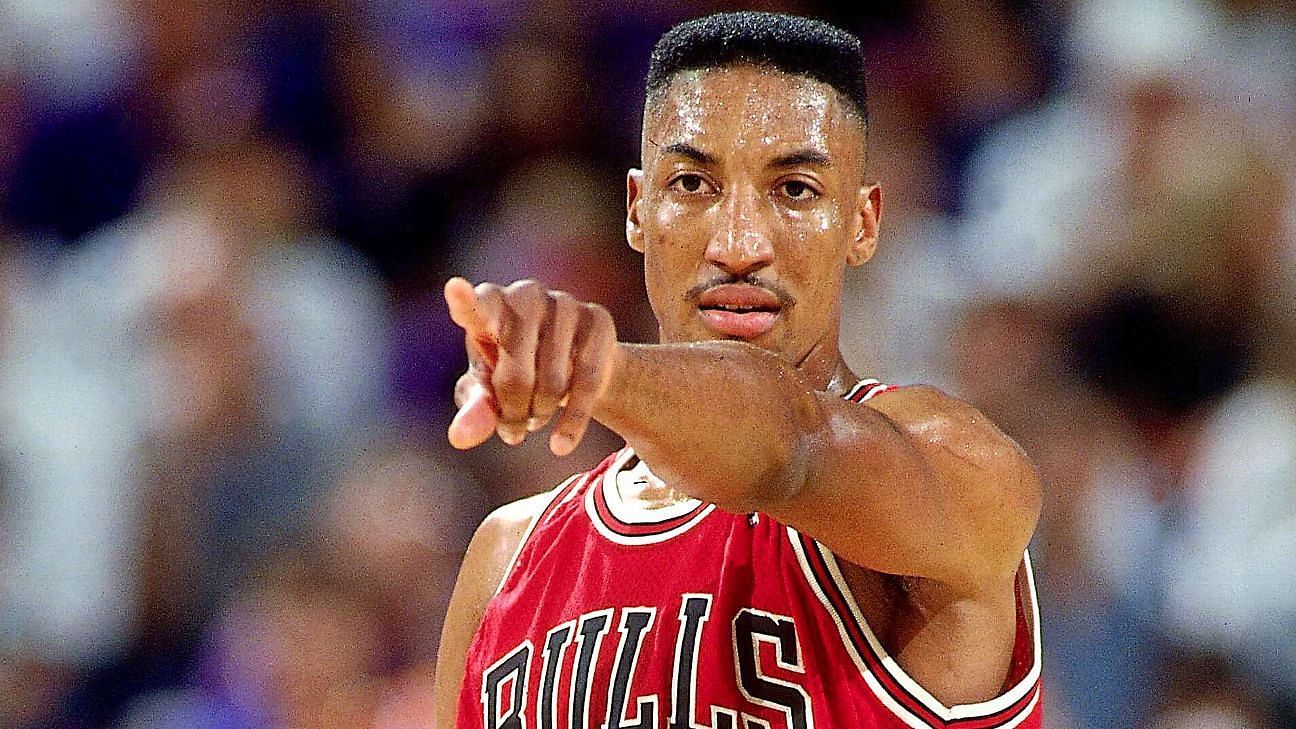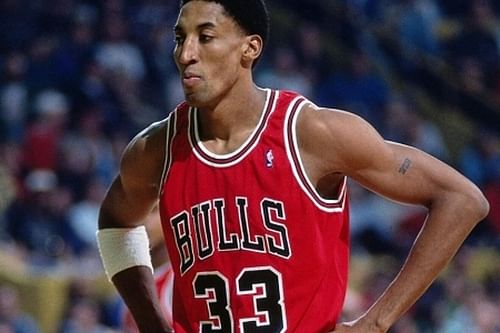
What were Scottie Pippen's contract details when he signed the infamous Chicago Bulls deal
Scottie Pippen is undeniably the second-best player to ever suit up for the Chicago Bulls next to Michael Jordan. Typically, top NBA players are being paid big figures for their services. But that wasn't the case for Pippen. During the Bulls' two title runs with the star duo of Mike and Scottie, Pip was underpaid by Jerry Kraus. Despite being the second-best player, he was the sixth highest paid on the team.
But how exactly did the Chicago Bulls organization manage to get Pip into this messy situation?
Scottie Pippen: The underpaid Superstar

The Bulls legend was also underpaid during Scottie Pippen's entry-level years. Pippen was the fifth overall pick in the 1987 NBA Draft, initially selected by the Seattle SuperSonics. He was then traded on draft night to Chicago and signed a four-year rookie contract worth $2.83 million. In those first few years, Pippen averaged 14.1 points, 5.9 rebounds, 4.3 assists, and two steals per game.
Pippen's performances in his first four years were efficient enough to support Michael Jordan and the Chicago Bulls to win the title in 1991. With that in mind, one would expect Scottie to be paid accordingly for his contract extension. Unfortunately, that wasn't the case. Pip ended up re-signing with the Bulls in a seven-year deal worth only $19.45 million. That's basically $2.77 million a year.
To summarize, Jerry Kraus was paying an All-Star caliber player the value of a typical role player. Unfortunately, Scottie Pippen played in an era when NBA contracts were not as easily maximized as they are today.
The salary ceiling used to be more than ten times lower than it is now. The best players were compensated handsomely. While many players benefited, Pippen was notoriously unaffected. He played the majority of the 1990s under one of the worst contracts in NBA history: a five-year, $18 million contract that was much more difficult than those parameters suggest, as explained in the "The Last Dance" documentary.
In Chicago's final championship season, Pippen was the sixth-highest-paid player on the roster and the 122nd-highest-paid NBA player. Instead of renegotiating the contract, Bulls owner Jerry Reinsdorf and general manager Jerry Krause used his meager salary cap amount to assemble championship lineups centered on Michael Jordan and Scottie Pippen.
Pippen's frustrations were evident throughout his entire tenure with the franchise, up until his eventual departure in a 1999 sign-and-trade with the Houston Rockets. So, how did the Bulls keep paying Pippen so little for so long? It is a depressingly simple solution. There were no laws in place in 1991 to protect owners and athletes from unfair contracts.